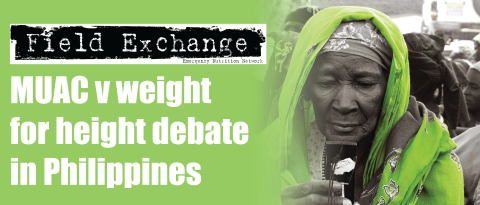Exclusive breastfeeding promotion by peer counsellors in sub-Saharan Africa
Summary of published research1

Mother and child health nutrition programme in Uganda
Exclusive breastfeeding (EBF) is reported to be a life-saving intervention in lowincome settings. A recent cluster-randomised trial set out to assess the effect of breastfeeding counselling by peer counsellors in Africa.
Twenty-four communities in Burkina Faso, 24 communities in Uganda, and 34 communities in South Africa were assigned in a 1:1 ratio, by use of a computer-generated randomisation sequence, to the control or intervention clusters. In the intervention group, the research team scheduled one antenatal breastfeeding peer counselling visit and four post-delivery visits by trained peers. The data gathering teams were masked to the intervention allocation. The primary outcomes were prevalence of EBF and diarrhoea reported by mothers for infants aged 12 weeks and 24 weeks. Country-specific prevalence ratios were adjusted for cluster effects and sites. Analysis was by intention to treat.
A total of 2,579 mother-infants pairs were assigned to the intervention or control clusters in Burkina Faso (n=392 and n = 402, respectively), Uganda (n=396 and n=369, respectively), and South Africa (n=535 and 485, respectively).
The prevalences of EBF at 12 and 24 weeks of age are given in Table 1, and the prevalences of diarrohea in Table 2. These show a much higher prevalence of EBF in the intervention groups in Burkino Faso and Uganda at both 12 and 24 weeks. The prevalence and differential between the intervention and control groups is much lower in South Africa. An impact on diarrhoea prevalence was not found.
| Table 1: EBF prevalence at 12 weeks and 24 weeks of age | ||||||||
| EBF (24 hour recall) at 12 weeks | EBF (24 hour recall) at 24 weeks | |||||||
| Intervention | Control | Prevalence ratio | 95% CI | Intervention | Control | Prevalence ratio | 95% CI | |
| Burkino Faso | 79% (310/392) | 35% (139/402) | 2.29 | 1.33-3.92 | 73% (286/392) | 22% (88/402) | 3.33 | 1.74-6.38 |
| Uganda | 82% (323/396) | 44% (161/369) | 1.89 | 1.70-2.11 | 59% (232/396) | 15% (57/369) | 3.83 | 2.97-4.95 |
| South Africa | 10% (56/535) | 6% (30/485) | 1.98 | 1.30-3.02) | 2% (12/535) | <1 % (2/485) | 9.83 | 1.40-69.14) |
| Table 2: Diarrhoea prevalence at 12 weeks and 24 weeks of age | ||||||||
| Diarrhoea prevalence at 12 weeks | EBF (24 hour recall) at 24 weeks | |||||||
| Intervention | Control | Prevalence ratio | 95% CI | Intervention | Control | Prevalence ratio | 95% CI | |
| Burkino Faso | 5% (20/392) | 9% (36/402) | 0.57 | 0.27-1.22 | 7% (26/392) | 8% (32/402) | 0.83 | 0.45-1.54 |
| Uganda | 10% (39/396) | 9% (32/369) | 1.13 | 0.81-1.59 | 13% (52/396) | 16% (59/369) | 0.82 | 0.58-1.15 |
| South Africa | 8% (45/535) | 7% (33/485) | 1.16 | 0.78-1.75) | 10% (54/535) | 7% (33/485) | 1.31 | 0.89-1.93 |
The results for South Africa must be viewed in the context of EBF being rare at baseline. Most people in rural and urban South Africa purchase most of their food and the Department of Health’s routine child health services have a history of promoting commercial infant formula as part of the protein energy malnutrition scheme, while the International Code of Marketing of breastmilk substitutes is not yet legislated in South Africa.
The authors conclude that low-intensity individual breastfeeding peer counselling is achievable and, although it does not affect the diarrhoea prevalence, can be used to effectively increase EBF prevalence in many sub-Saharan African settings.
The authors of the study caution that the community based approach could possibly have resulted in socially desirable answers. The results were based on self-reports so that a bias towards desirable answers cannot be ruled out. There was also some questionnaire fatigue in the Ugandan site, i.e. reluctance to fully engage in answering similar questions after a few interviews.
Overall, however, the authors conclude that low-intensity individual breastfeeding peer counselling is achievable and, although it does not affect the diarrhoea prevalence, can be used to effectively increase EBF prevalence in many sub-Saharan African settings.
1Tylleskar. T et al (2011). Exclusive breastfeeding promotion by peer counsellors in sub-Saharan Africa (PROMISE-EBF): a cluster-randomised trial. www.thelancet.com Vol 378, July 30, 2011, pp 420-427
Imported from FEX website


